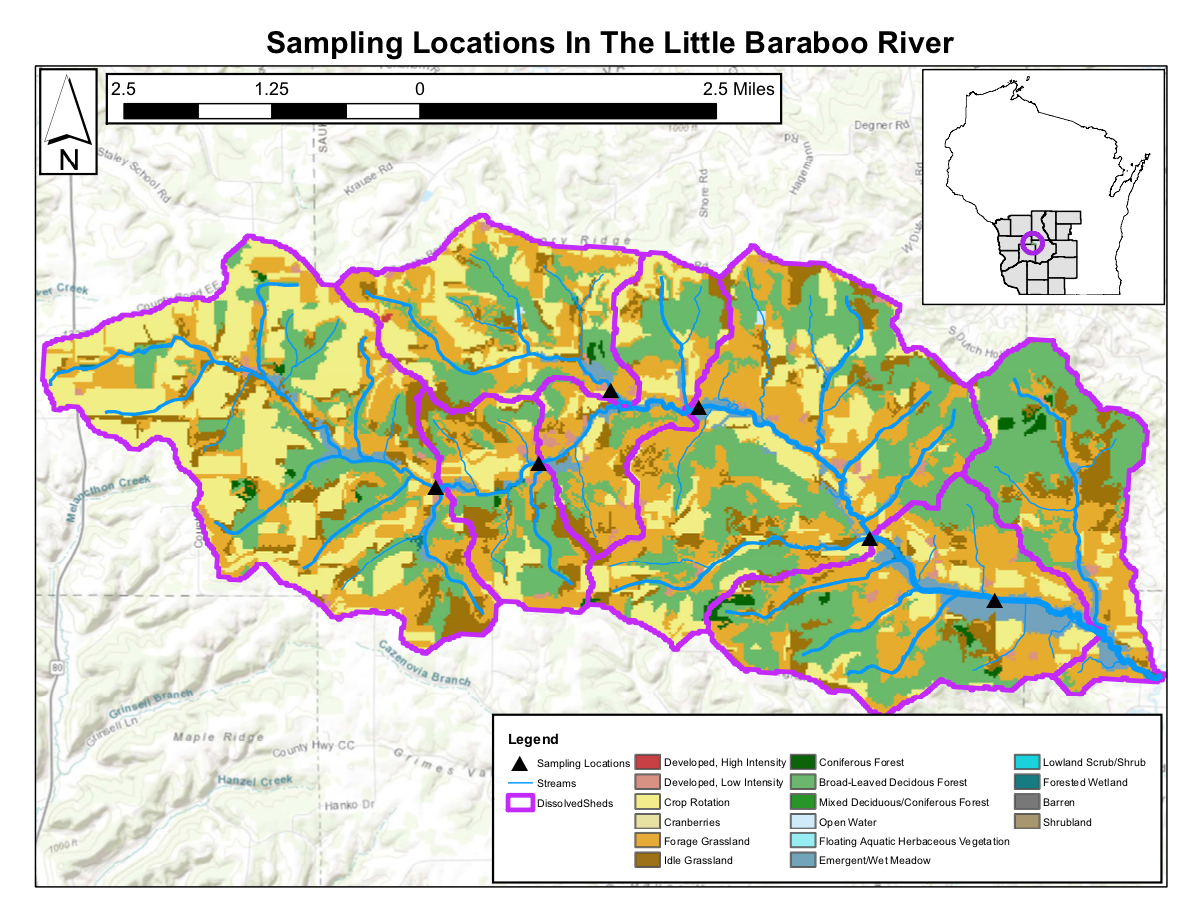
Paul Arellano spent last summer and fall as a student at the University of Wisconsin-Platteville Baraboo Sauk County, taking surface water samples from six points along the Little Baraboo River. That’s not one of the major tributaries of the Wisconsin River, but it is its second-largest source of contaminants like phosphorus and nitrates. Since surface water quality impacts not only the aquatic ecosystem and the local water supply, but also agriculture and tourism, “it’s important to maintain and preserve the quality of our streams,” said Arellano, from Muscoda, Wisconsin.
Arellano, who now studies at UW-Platteville, will share his findings with legislators, state leaders, alumni and the public at the 16th annual Research in the Rotunda event in the state capitol in Madison, Wisconsin on Wednesday, April 17. He hopes it can help connect agriculture practices with their impact on the river’s surface water quality.
Arellano worked in collaboration with his professor, Dr. Stephen Swallen from UW-Platteville Baraboo Sauk County, who had secured grant funding from the UW System Water Research Collaborative to study local water quality. Arrelano sees clear correlations in the research findings. “There were significant differences [in contaminants] from the top [that increased] as we went downstream.” Those upstream sites have more crops nearby, while there are more cattle at the lower sites, which changes what kind of farm runoff is generated. To preserve area water quality, Swallen asked, “What can we do to help farmers help themselves?”
A precursor project led by Swallen involved multiple students who were taking water samples at a different local stream, but this past summer’s research grant, combined with Arellano successfully applying to be a Wisconsin Water Research Fellow, has let the collaboration with Sauk County deepen and grow, so that Swallen now plans to keep the research going with new students on a regular basis.
Arellano has been working with Sauk County officials to bring the research results to area farmers, hoping to help improve water quality across the area. That outreach, and the fieldwork experience he has been able to get while studying at UW-Platteville Baraboo Sauk County, have enabled him to see research and its application as part of his future, as he studies environmental science at UW-Platteville. The research project gave him a real taste of what it would be like to do this kind of work.
“I gained experience performing laboratory analysis and the instrumentation we use [in the lab],” Arellano said. “Using chemistry to help solve a real-world problem is really valuable.”